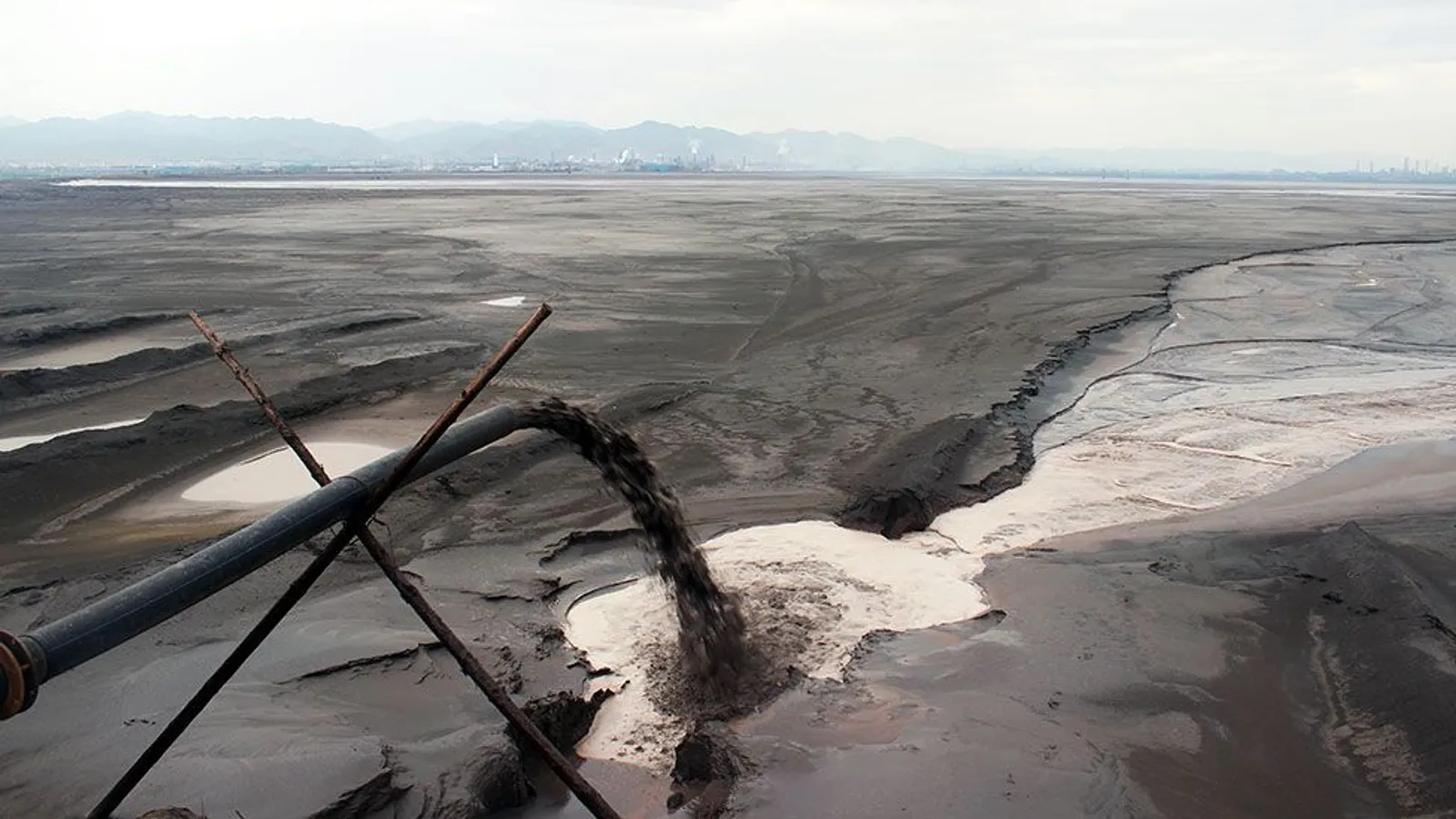Did you know that China is behind the latest push to have Australia's Great Barrier Reef declared ecologically "in danger" by UNESCO?
Champion of the environment, China:
Where, before it was known for Covid-19, Wuhan was known for scenes like this:
And in Inner Mongolia they actually named this Baotou Toxic Lake:

From Knowable Magazine, August 5:
With the health of the ocean under threat, a rallying cry for marine conservation goes global. Here are some of the good-news stories.
Yes, we’ve got an ocean of bad news. Climate change is warming and acidifying seawater, stressing or destroying coral reefs. Marine species ranging from whales to algae are endangered; overfishing is crushing many subsistence fisheries.
Coastal ecosystems have been wiped out on a grand scale; key ocean currents may be faltering; mining firms are preparing to rip up the deep seafloor to harvest precious minerals, with unknown ecological costs. And let's not even talk about ocean pollution.
But there’s good news, too, says Nancy Knowlton, a coral reef biologist at the Smithsonian National Museum of Natural History. In fact, she says, many marine conservation efforts around the globe are seeing good results.
“There are a lot of successes out there, and most people don’t know about them,” Knowlton says. It’s important to share those successes, she adds, to avoid paralyzing feelings of hopelessness and to spread the knowledge of approaches that work. That’s why she and her allies began pushing the #oceanoptimism Twitter hashtag in 2014. Organizations such as Conservation Optimism and the Cambridge Conservation Initiative have broadened her theme, helping to share conservation stories, findings, resolve and resources.
In marine conservation, “successful efforts typically are neither quick nor cheap and require trust and collaboration,” Knowlton wrote in a 2020 Annual Review of Marine Science paper promoting ocean optimism. Focusing on success stories, she stressed, helps motivate people to work toward new successes.
Here are glimpses of a few bright spots in the pitched battle for the blue planet.
Some high-profile conservation efforts are already paying off.
An international moratorium on commercial whale hunting that started in the 1980s has shown dramatic results, even though a few species are still hunted by several countries and indigenous groups. While some whale populations remain very much in trouble — the North Atlantic right whale, for instance, is critically endangered — others are rebounding. The population of humpback whales in the western South Atlantic, which had dropped to around 450 in the 1950s, now is estimated at around 25,000 — near the level scientists estimate existed before hunting began. The International Whaling Commission estimates the global population of these whales now may be around 120,000 animals. Blue, bowhead, fin and sei whale populations are also growing globally, according to the International Union for Conservation of Nature.
Sea turtles are another success story. Most populations of turtles included in a recent survey were found to be growing, even though the animals must be protected on both land and sea. In Florida, scientists estimate that the population of green turtle nests climbed from 62 in 1979 to 37,341 in 2015. And in Texas, Kemp’s Ridley turtle nests rose from just 1 to 353 over roughly the same time period, Knowlton notes.
Many fisheries are reasonably well managed.
In many areas, the ocean is dangerously overfished. But the world’s most valuable fisheries, which make up roughly 34 percent of global captures, are relatively healthy in general, environmental economists Christopher Costello of the University of California at Santa Barbara and Daniel Ovando of the University of Washington in Seattle wrote in the 2019 Annual Review of Environment and Resources....
....MUCH MORE
On the GBR, here's the Daily Mail of June 21, 2021:
....The man at the centre of China's latest efforts to economically punish Australia after the Morrison government called for an independent inquiry into the origin of the Covid pandemic in April last year, is China's Vice-Minister for Education Tian Xuejun.
Mr Tian is the chairman of UNESCO - the global body which oversees the 21-nation World Heritage Committee of which Australia is a member.
The organisation's role is to safeguard important natural and manmade sites around the world.....
Another article had Tian's response to Australia's objection to the designation:
....Tian Xuejun, China’s deputy education minister and chairman of this year’s session, said: “Australia, as a member of the World Heritage Committee, should give importance to the opinion of the advisory bodies and the World Heritage instead of making baseless allegations against other countries.” The duty of protection should be done honestly....
Spoken like a true party functionary. Meanwhile China is destroying huge areas of reef in the South China Sea to build military bases.